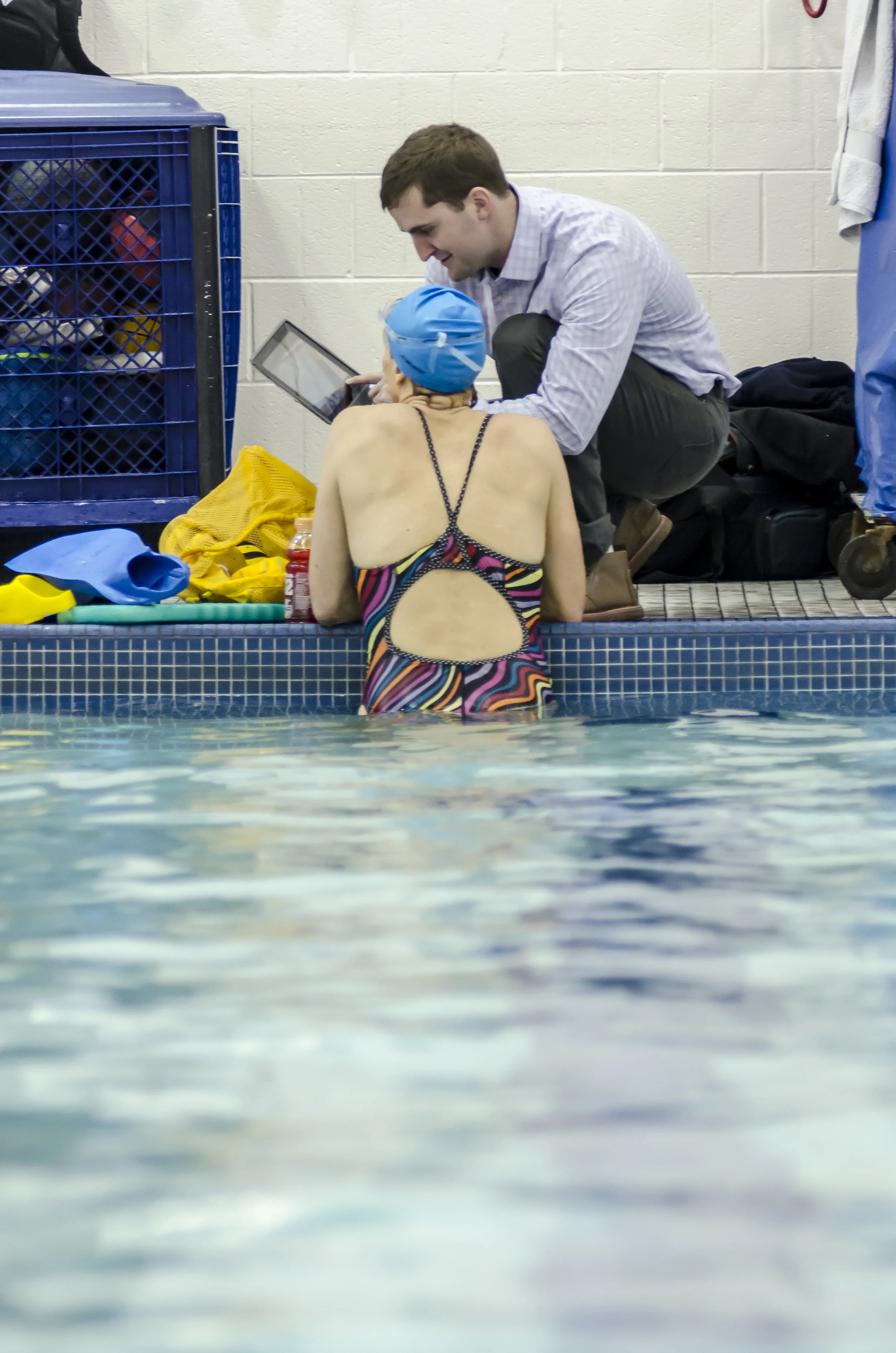Can you remember the most fun you ever had swimming? For me it was my first year of high school swimming. I stepped up to swim the breaststroke leg of a medley relay. To my right? Future Olympian Erik Vendt.
And although I lost significant ground, it was so much fun to compete with someone on that level, in a distance where I didn't get totally blown away.
We are lucky that swimming comes in so many forms in the United States. It isn't so in the rest of the world, some of the ways to swim I'm about to list are painfully absent outside America. So, without further ado, here are all the ways to compete in swimming, ranked.
1. Summer League/Rec League/Town Team
Is there a focus on the best part of the sport, direct competition? Yes. Is there score kept? Yes. What's the atmosphere like at competitions? Typically people are having a blast, spectators included.
Recreational swimming has the most coaches involved for the best reasons (certainly not money), to have fun with the sport and to enjoy that sport with kids.
2. High School Swimming
Combines everything great about rec league swimming with a concentration on a certain age group. Bonus points for the recognition swimmers can get among their peers when they compete in something their peers actually understand.
The only reason high school swimming isn't ranked #1 is that in contrast to recreational teams, there is a more fringe of high school swimming sucking the fun out of the sport for kids. Still, go to a competitive high school meet and have the slightest idea what is going on and I guarantee a good time.
3. College Swimming
College swimming co-opts some of the best parts of high school and rec swimming. There are dual meets and championship meets that are often exciting and where score is kept. There is a focus on team competition.
Unfortunately coaching in college has a downside. Often collegiate programs exist without much oversight from their athletic departments, mostly for the worse. Many coaches can get away with poor treatment of athletes and maintain their jobs because of entrenched hierarchy.
4. YMCA Swimming
Although YMCA Swimming is similar to club swimming in many ways, there is a greater focus on enjoyable competitions, as well as the context of sports.
The institutional nature of YMCAs mean that more often than not they are more professionally run than most club programs.
5. Club Swimming
Some will say it is unfair to put club swimming last. There are some truly excellent club swimming programs out there, run professionally with the proper focus on kids enjoying the sport, learning and with the proper perspective on swimming's role in a life well-lived.
Club competitions, however, are mostly terrible and drain competitors, parents and coaches alike. The business model for such meets is heavily entrenched and seems unlikely to change.
We do not have good metrics for rating club programs, so instead use club recognition program that is overwhelmingly results focused and skews heavily towards club size.
The most successful club model, the coach run club, can also be the most dangerous, particularly if there are not good internal checks placed on coaching behavior.
Teams run by board of directors often suffer from a board made up of parents of swimmers on the club, leading to huge conflicts of interest.
We've Got A Lot
Although this can sound critical, the good news is that there are a lot of good options should you choose to get involved in swimming. Parents, coaches and athletes should take into account all factors when considering which teams to get involved with.
Disagree? Want to know more about how to make swimming better on your team? Write me!






